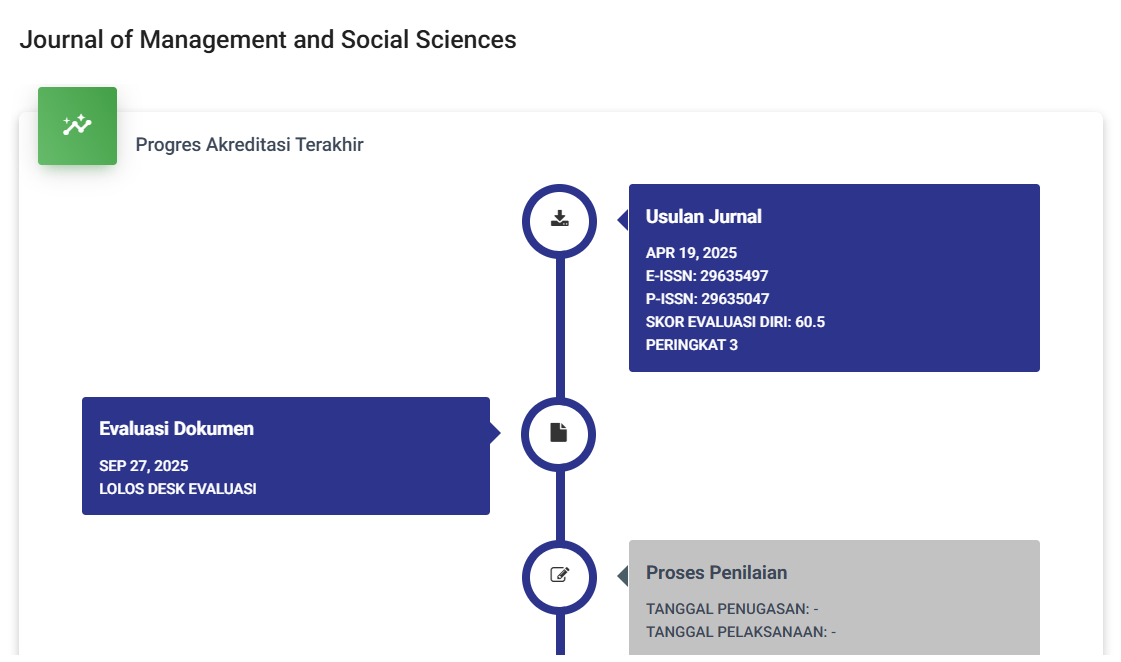The Interplay of Teacher Workload, Student Achievement, and Buddhist Philosophy in Shaping Educational and Business Connections within Science and Technology
DOI:
https://doi.org/10.55606/jimas.v2i4.1119Keywords:
Teacher workload, Student achievement, Buddhist philosophy, Educational-business connections, Science and technology synergiesAbstract
This qualitative research aims to investigate the intricate interplay between teacher workload, student achievement, and Buddhist philosophy in shaping connections between education and business realms in science and technology fields. Employing a phenomenological research model, the study will utilize purposive sampling to select participants from educational and business sectors. Data analysis will be conducted through thematic analysis, unraveling the nuanced relationships among the variables. The study anticipates revealing how Buddhist philosophical principles influence pedagogical practices, thereby impacting student outcomes and fostering collaborative ventures between academia and industry. Results are expected to provide insights into holistic educational approaches and the potential for synergy between spiritual values and technological advancements.
References
Aguirre, J. M., & Speer, N. M. (2000). Examining the relationship between teacher involvement and students' cognitive and behavioral engagement in science. School Science and Mathematics, 100(2), 76-83.
Baldwin, C. Y., & Von Hippel, E. (2011). Modeling a paradigm shift: From producer innovation to user and open collaborative innovation. Organization Science, 22(6), 1399-1417.
Braun, V., & Clarke, V. (2006). Using thematic analysis in psychology. Qualitative Research in Psychology, 3(2), 77-101.
Creswell, J. W., & Poth, C. N. (2018). Qualitative inquiry and research design: Choosing among five approaches. Sage Publications.
Dunn, D. S., Hart, A. W., & Jha, A. P. (2012). Investigating the impact of mindfulness meditation training on working memory: A mathematical modeling approach. Current Psychology, 31(1), 141-152.
Guest, G., Bunce, A., & Johnson, L. (2006). How many interviews are enough? An experiment with data saturation and variability. Field Methods, 18(1), 59-82.
Gunaratana, B. H. (2002). Mindfulness in plain English. Simon and Schuster.
Hanushek, E. A., & Woessmann, L. (2007). The role of cognitive skills in economic development. Journal of Economic Literature, 46(3), 607-668.
Kasih, E. (2020). The Conformity Of Science And Technology Development With Buddhism In Civilization Across Time. Available At Ssrn 3788104. https://ssrn.com/abstract=3788104 or http://dx.doi.org/10.2139/ssrn.3788104
Kasih, E., & Suganda., A. (1999). Pendidikan Tinggi Era Indonesia Baru. Jakarta:Grasindo.
Klassen, R. M., & Chiu, M. M. (2010). Effects on teachers' self-efficacy and job satisfaction: Teacher gender, years of experience, and job stress. Journal of Educational Psychology, 102(3), 741-756.
Lantieri, L., & Nambiar, M. (2012). Transforming education through mindfulness practices. Phi Delta Kappan, 93(8), 36-40.
Lutz, A., Slagter, H. A., Dunne, J. D., & Davidson, R. J. (2008). Attention regulation and monitoring in meditation. Trends in Cognitive Sciences, 12(4), 163-169.
OECD. (2008). Higher education and regions: Globally competitive, locally engaged. OECD Publishing.
Palinkas, L. A., Horwitz, S. M., Green, C. A., Wisdom, J. P., Duan, N., & Hoagwood, K. (2015). Purposeful sampling for qualitative data collection and analysis in mixed method implementation research. Administration and Policy in Mental Health and Mental Health Services Research, 42(5), 533-544.
Schonert-Reichl, K. A., & Lawlor, M. S. (2010). The effects of a mindfulness-based education program on pre-and early adolescents' well-being and social and emotional competence. Mindfulness, 1(3), 137-151.
Sugiharti, T., Ruslaini, R., & Kasih, E. (2021). The Influence of Principal Leadership, PE Teacher Professional Competence and Teacher Workload toward Sports Achievement in Dieng. Jurnal Manajemen Bisnis, 8(2), 205–213. https://doi.org/10.33096/jmb.v8i2.87
Downloads
Published
Issue
Section
License
Copyright (c) 2023 Erwin Ernestus Kadar Slamet, Selvi Agustina

This work is licensed under a Creative Commons Attribution-ShareAlike 4.0 International License.








